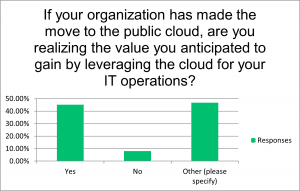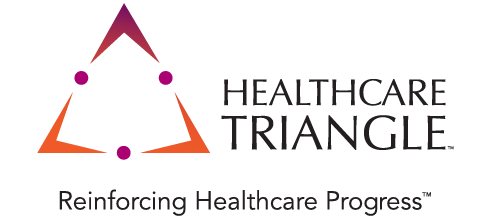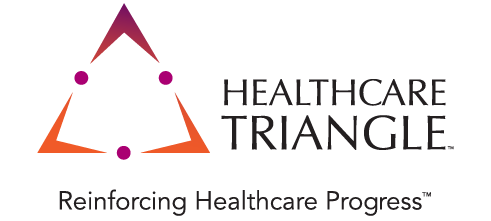Survey Illustrates Importance of a Strategic Approach to Healthcare Cloud Investment
Healthcare Triangle
Feb 17, 2022
By 2025, experts expect the healthcare cloud computing market to reach $64.7 billion as organizations seek to improve operational and clinical efficiencies. The business case for moving to the cloud is clear. To achieve digital transformation—which involves automation—the cloud is the best place to implement artificial intelligence, machine learning, robotic process automation, and more.
Yet across the industry, healthcare organizations still face large barriers when it comes to getting the most from their cloud platform. In fact, a recent survey of healthcare IT leaders consistently revealed one of the most pressing issues healthcare IT executives face: determining the ROI from their move to the cloud.
Value is Still a Work in Progress
The survey, conducted in July 2021, focused on where participants stand in their cloud adoption journey, the approaches they have taken and the ways in which they are leveraging their investment.
 Just 45% of healthcare IT leaders surveyed believe they are getting the value they expected to receive from their cloud investment. On the other hand, approximately 47% say it’s still too early to tell if their investment is providing value.
This split in opinions was clearly illustrated when a respondent said their organization’s mostly software-as-a-service approach to the cloud resulted in “overall good results.” However, this somewhat positive outlook was followed by a far more neutral report from another prominent player in the healthcare IT space, who stated simply, “We are getting what we can afford from the [private] cloud.”
More than Half of Healthcare Organizations Are Still Seeking ROI from the Cloud
Just 45% of healthcare IT leaders surveyed believe they are getting the value they expected to receive from their cloud investment. On the other hand, approximately 47% say it’s still too early to tell if their investment is providing value.
This split in opinions was clearly illustrated when a respondent said their organization’s mostly software-as-a-service approach to the cloud resulted in “overall good results.” However, this somewhat positive outlook was followed by a far more neutral report from another prominent player in the healthcare IT space, who stated simply, “We are getting what we can afford from the [private] cloud.”
More than Half of Healthcare Organizations Are Still Seeking ROI from the Cloud
 Clearly, with 55% of healthcare organizations still seeking a positive return on investment from cloud services, determining the value from healthcare cloud investments can still be considered a work in progress.
Making Your Cloud Investment Work for You
So, what can be done to gain optimal value from a move to the cloud?
The answer to that question lies in understanding two issues, both of which can dramatically reduce or even prevent ROI capture in cloud investment in the ever-changing healthcare space.
The first issue that limits cloud ROI is the tendency among healthcare IT teams to treat the cloud as nothing more than an extension of their data center.
Capturing the expected value from the move to the cloud requires that healthcare IT leaders manage their cloud platform differently than they would a data center, combining best practices in software development and IT operations. They must also staff their transition to the cloud with the right talent.
A critical point in remaining competitive in your market and optimizing your investment in the cloud is creating a cloud center of excellence, staffing it with employees who can maintain or even enhance that level of excellence.
The second barrier to cloud investment optimization is neglecting to leverage a managed cloud services approach.
Managed cloud services provide partial to complete management and control of your organization’s cloud platform, from migration and maintenance to optimization, while avoiding new hiring and training costs. Outsourcing cloud management also allows businesses to:
Clearly, with 55% of healthcare organizations still seeking a positive return on investment from cloud services, determining the value from healthcare cloud investments can still be considered a work in progress.
Making Your Cloud Investment Work for You
So, what can be done to gain optimal value from a move to the cloud?
The answer to that question lies in understanding two issues, both of which can dramatically reduce or even prevent ROI capture in cloud investment in the ever-changing healthcare space.
The first issue that limits cloud ROI is the tendency among healthcare IT teams to treat the cloud as nothing more than an extension of their data center.
Capturing the expected value from the move to the cloud requires that healthcare IT leaders manage their cloud platform differently than they would a data center, combining best practices in software development and IT operations. They must also staff their transition to the cloud with the right talent.
A critical point in remaining competitive in your market and optimizing your investment in the cloud is creating a cloud center of excellence, staffing it with employees who can maintain or even enhance that level of excellence.
The second barrier to cloud investment optimization is neglecting to leverage a managed cloud services approach.
Managed cloud services provide partial to complete management and control of your organization’s cloud platform, from migration and maintenance to optimization, while avoiding new hiring and training costs. Outsourcing cloud management also allows businesses to:
 Just 45% of healthcare IT leaders surveyed believe they are getting the value they expected to receive from their cloud investment. On the other hand, approximately 47% say it’s still too early to tell if their investment is providing value.
This split in opinions was clearly illustrated when a respondent said their organization’s mostly software-as-a-service approach to the cloud resulted in “overall good results.” However, this somewhat positive outlook was followed by a far more neutral report from another prominent player in the healthcare IT space, who stated simply, “We are getting what we can afford from the [private] cloud.”
More than Half of Healthcare Organizations Are Still Seeking ROI from the Cloud
Just 45% of healthcare IT leaders surveyed believe they are getting the value they expected to receive from their cloud investment. On the other hand, approximately 47% say it’s still too early to tell if their investment is providing value.
This split in opinions was clearly illustrated when a respondent said their organization’s mostly software-as-a-service approach to the cloud resulted in “overall good results.” However, this somewhat positive outlook was followed by a far more neutral report from another prominent player in the healthcare IT space, who stated simply, “We are getting what we can afford from the [private] cloud.”
More than Half of Healthcare Organizations Are Still Seeking ROI from the Cloud
 Clearly, with 55% of healthcare organizations still seeking a positive return on investment from cloud services, determining the value from healthcare cloud investments can still be considered a work in progress.
Making Your Cloud Investment Work for You
So, what can be done to gain optimal value from a move to the cloud?
The answer to that question lies in understanding two issues, both of which can dramatically reduce or even prevent ROI capture in cloud investment in the ever-changing healthcare space.
The first issue that limits cloud ROI is the tendency among healthcare IT teams to treat the cloud as nothing more than an extension of their data center.
Capturing the expected value from the move to the cloud requires that healthcare IT leaders manage their cloud platform differently than they would a data center, combining best practices in software development and IT operations. They must also staff their transition to the cloud with the right talent.
A critical point in remaining competitive in your market and optimizing your investment in the cloud is creating a cloud center of excellence, staffing it with employees who can maintain or even enhance that level of excellence.
The second barrier to cloud investment optimization is neglecting to leverage a managed cloud services approach.
Managed cloud services provide partial to complete management and control of your organization’s cloud platform, from migration and maintenance to optimization, while avoiding new hiring and training costs. Outsourcing cloud management also allows businesses to:
Clearly, with 55% of healthcare organizations still seeking a positive return on investment from cloud services, determining the value from healthcare cloud investments can still be considered a work in progress.
Making Your Cloud Investment Work for You
So, what can be done to gain optimal value from a move to the cloud?
The answer to that question lies in understanding two issues, both of which can dramatically reduce or even prevent ROI capture in cloud investment in the ever-changing healthcare space.
The first issue that limits cloud ROI is the tendency among healthcare IT teams to treat the cloud as nothing more than an extension of their data center.
Capturing the expected value from the move to the cloud requires that healthcare IT leaders manage their cloud platform differently than they would a data center, combining best practices in software development and IT operations. They must also staff their transition to the cloud with the right talent.
A critical point in remaining competitive in your market and optimizing your investment in the cloud is creating a cloud center of excellence, staffing it with employees who can maintain or even enhance that level of excellence.
The second barrier to cloud investment optimization is neglecting to leverage a managed cloud services approach.
Managed cloud services provide partial to complete management and control of your organization’s cloud platform, from migration and maintenance to optimization, while avoiding new hiring and training costs. Outsourcing cloud management also allows businesses to:
- Enhance security and compliance
- Reduce complexity and create smarter, more flexible operations
- Most effectively leverage AI, machine learning, predictive analytics and other technologies
- Adopt best practices for cloud platform management
- Gain insight into cloud usage across business units
- Identify trends and forecast patterns to make informed decisions
- Free up internal IT teams to focus on initiatives that drive new business outcomes


